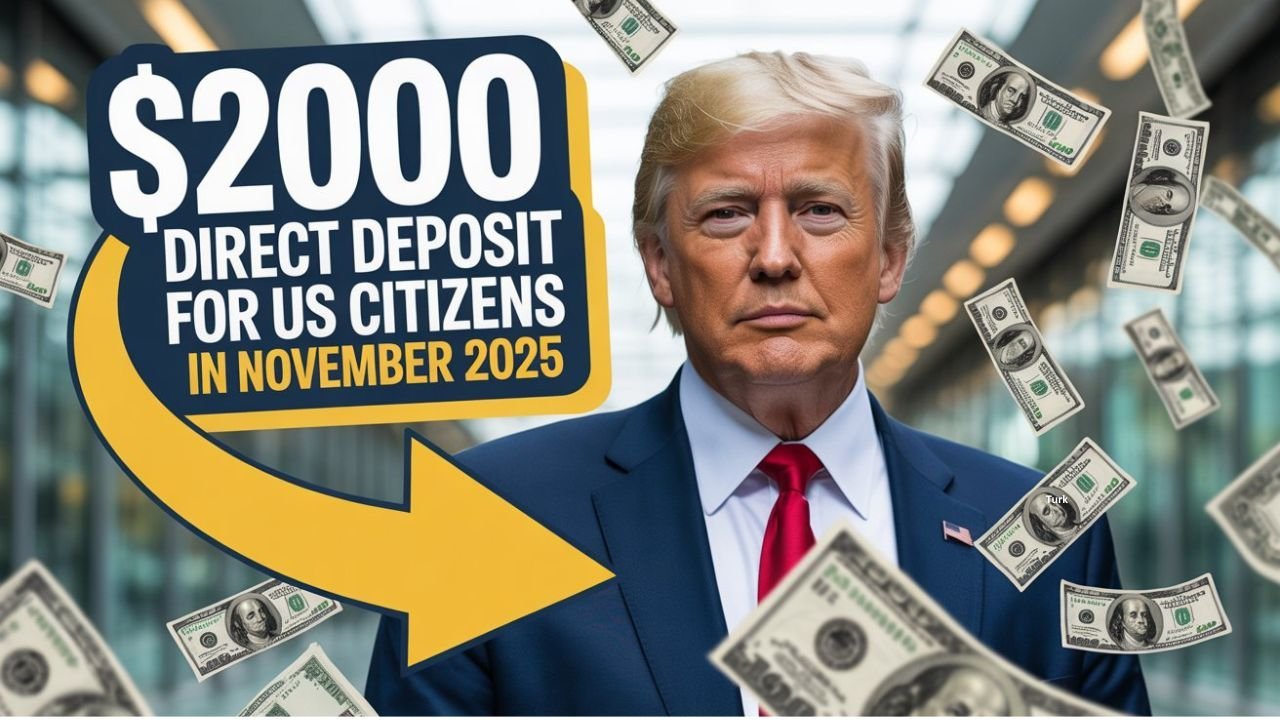Across social media and news blogs, millions of Americans have recently seen claims about a $2,000 direct deposit supposedly arriving in November 2025. Many people are asking whether this is a new stimulus payment or another government relief program. Let’s take a clear look at what’s true, what’s speculation, and what’s actually happening.
The Viral Claim
According to online posts, every U.S. citizen is set to receive a $2,000 payment directly into their bank accounts in November 2025. The message suggests it’s a government-approved relief initiative, often described as an “inflation rebate,” “stimulus,” or “tariff-funded check.”
However, as of late October 2025, no such nationwide payment has been confirmed by the U.S. Treasury, the Internal Revenue Service (IRS), or Congress.
What’s Really Behind the $2,000 Payment Talk
The $2,000 figure seems to come from speculation surrounding proposed economic relief discussions in Washington, D.C. Some lawmakers have expressed interest in funding new cost-of-living or inflation relief measures using tariff revenues or budget reallocations, but no bill has been passed or enacted to authorize a direct deposit program.
In short, the $2,000 payment rumor is not an official government program. It’s a mix of online assumptions, political proposals, and recycled news from older stimulus programs that ended years ago.
Current Federal Payment Programs
At present, the only ongoing federal direct deposit programs are:
-
Social Security and Supplemental Security Income (SSI) payments for retirees, people with disabilities, and eligible dependents.
-
Tax refunds and credits, which are distributed after filing annual federal tax returns.
-
Veterans Affairs (VA) benefits for eligible veterans and dependents.
None of these programs include a universal $2,000 payout to every citizen in November 2025.
Why the Rumor Spread So Widely
This rumor gained attention because Americans are still dealing with high living costs, and many recall the COVID-19 relief checks distributed in 2020–2021. As a result, any mention of “$2,000 direct deposits” quickly spreads online.
Some blogs and social media pages reuse images and headlines from earlier stimulus programs to attract clicks, leading to further confusion. These posts often feature misleading titles like “$2,000 Coming This Week for All U.S. Residents” or “Government Confirms New Payment Round,” even though no such announcement exists.
$1,702 Stimulus Payment for Everyone – November 2025 Full Payment Schedule
If a $2,000 Payment Is Approved in the Future
If Congress and the federal government were to approve a genuine $2,000 stimulus or relief payment, it would follow a transparent and official process:
-
A bill would be debated and passed into law.
-
The White House or U.S. Treasury would issue an official press release.
-
The IRS would publish eligibility rules, payment dates, and instructions for tracking deposits.
-
Funds would be distributed automatically via direct deposit, mailed checks, or prepaid debit cards to eligible individuals.
Until such steps occur, any claim of a “confirmed $2,000 payment” should be treated as unverified information.
What Citizens Should Do
-
Verify information through official websites such as IRS.gov, SSA.gov, or the U.S. Treasury Department before believing or sharing posts about new payments.
-
Avoid online forms or links asking for bank account or Social Security details unless they come from official government portals.
-
Stay updated on real programs, like Social Security cost-of-living adjustments (COLA) or state-specific tax rebates that may be approved individually.
Conclusion
As of now, there is no approved $2,000 direct deposit for all U.S. citizens in November 2025. The story circulating online is based on speculation and misleading headlines, not confirmed government action.
The only official federal payments scheduled for that month are regular Social Security, SSI, VA, and tax-related disbursements. Until an official law or announcement is made, Americans should remain cautious of viral posts and ensure they rely solely on verified government sources for financial updates.






